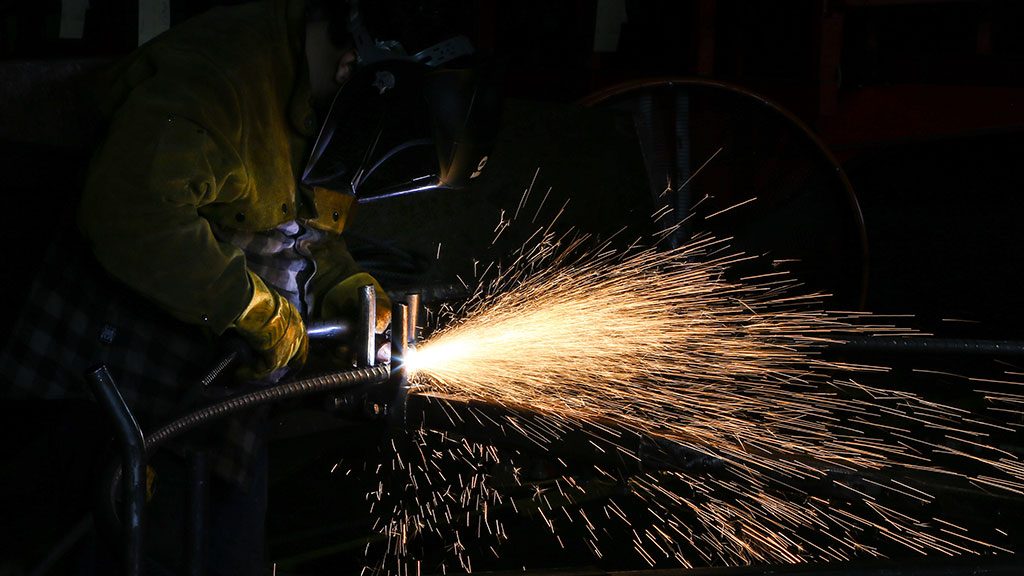Construction trade executives are shocked and concerned that the Ontario government is no longer enforcing trades certification at the province’s worksites.
Since 2009 the prescription, licensing and enforcement of compulsory trades has been the responsibility of the Ontario College of Trades (OCOT), but it was recently learned that the College has not issued notices of contraventions since the Doug Ford government was elected in 2018 with the promise to replace it.
A Ministry of Labour, Training and Skills Development (MLTSD) spokesperson stated OCOT, including its enforcement system, had become “deeply politicized and ineffective” and that “since we formed government, OCOT inspectors have taken an educational role.”
That decision puts lives at stake, suggested Patrick Dillon, business manager of the Provincial Building and Construction Trades Council of Ontario.
Lack of enforcement “leads to the same thing that it would lead to on the highways,” said Dillon. “If there’s no enforcement, the death rate will climb.
“It is horrible that people are paying for a service and not getting that service,” he said about trades workers who pay fees to OCOT. “The consumers are at risk, the workers are at risk, their productivity is at risk, and the professionalism of the trades is more at risk.”
Among the construction trades designated as compulsory are electricians, crane operators, plumbers, sheet metal workers and steamfitters.
International Union of Operating Engineers Local 793 business manager Mike Gallagher called it “shocking” to learn that compulsory certification for trades he represents, including crane operators, are not being enforced.
“We know without a doubt that compulsory certification and mandatory training drastically reduced crane accidents and deaths in Ontario’s construction industry since 1978,” stated Gallagher in an email, citing a study that showed in the years after the hoisting engineer trades became compulsory, there was an 80-per-cent reduction in incidents.
“We hope that they correct the gaps in enforcement immediately.”
The revelations were first reported by the CBC. The broadcaster examined notices of contravention posted on the OCOT site and found that College inspectors documented over 4,200 people working without proper certification in the licensed trades in each of 2015 and 2016 but none since 2018.
Whatever support that is articulated by Minister McNaughton means very little without active enforcement,
— Eric Comartin
Ontario Sheet Metal Workers’ and Roofers’ Conference Legal Counsel
OCOT’s replacement, Skilled Trades Ontario, will be officially launched on Jan. 1, 2022. MLTSD spokesperson Ryan Whealy said in a statement that workers are being kept safe through existing health and safety mandates until enforcement by the ministry under the new regime begins.
Whealy noted the ministry has hired 100 new health and safety inspectors and doubled the phone lines in its contact centre. The province undertook a crane safety inspection blitz last fall.
“As demonstrated throughout our fight against COVID, we left no stone unturned to keep workers safe including numerous inspection blitzes across our province and the assembly of a multi-ministry team,” stated Whealy.
Eric Comartin, legal counsel for the Ontario Sheet Metal Workers’ and Roofers’ Conference, said his union has known about the lack of enforcement since the fall of 2019. He said he has made submissions on the topic and about the quality of enforcement to the government.
“It’s not a revelation,” he said, commenting that Minister Monte McNaughton was taking steps in the right direction on skilled trades regulation. “But the fact is, absent any act of enforcement, whatever support that is articulated by Minister McNaughton means very little without active enforcement for individuals who are operating without the license or operating outside the law.”
Comartin noted unlicensed trade workers would have worked on some of the province’s most important projects, such as hospitals and schools.
“If you don’t have a license, you should be punished,” he said. “There’s a public safety component. But there’s also, and this is what I want to emphasize, if you’re an apprentice, and you are struggling, and you’re working, and you’re making a reduced wage, but you are doing it because you need to get your hours in to qualify as a licensed journeyperson as part of your licensing process. But if other people can do that work, why would you go through that process?”
Not only would projects be less safe with unqualified workers doing the work, the workers themselves would be imperilled, Dillon noted.
“The safety of the worker is being undermined by pushing people in to do work that they’re not qualified to do,” he said.
Follow the author on Twitter @DonWall_DCN.











Recent Comments
comments for this post are closed